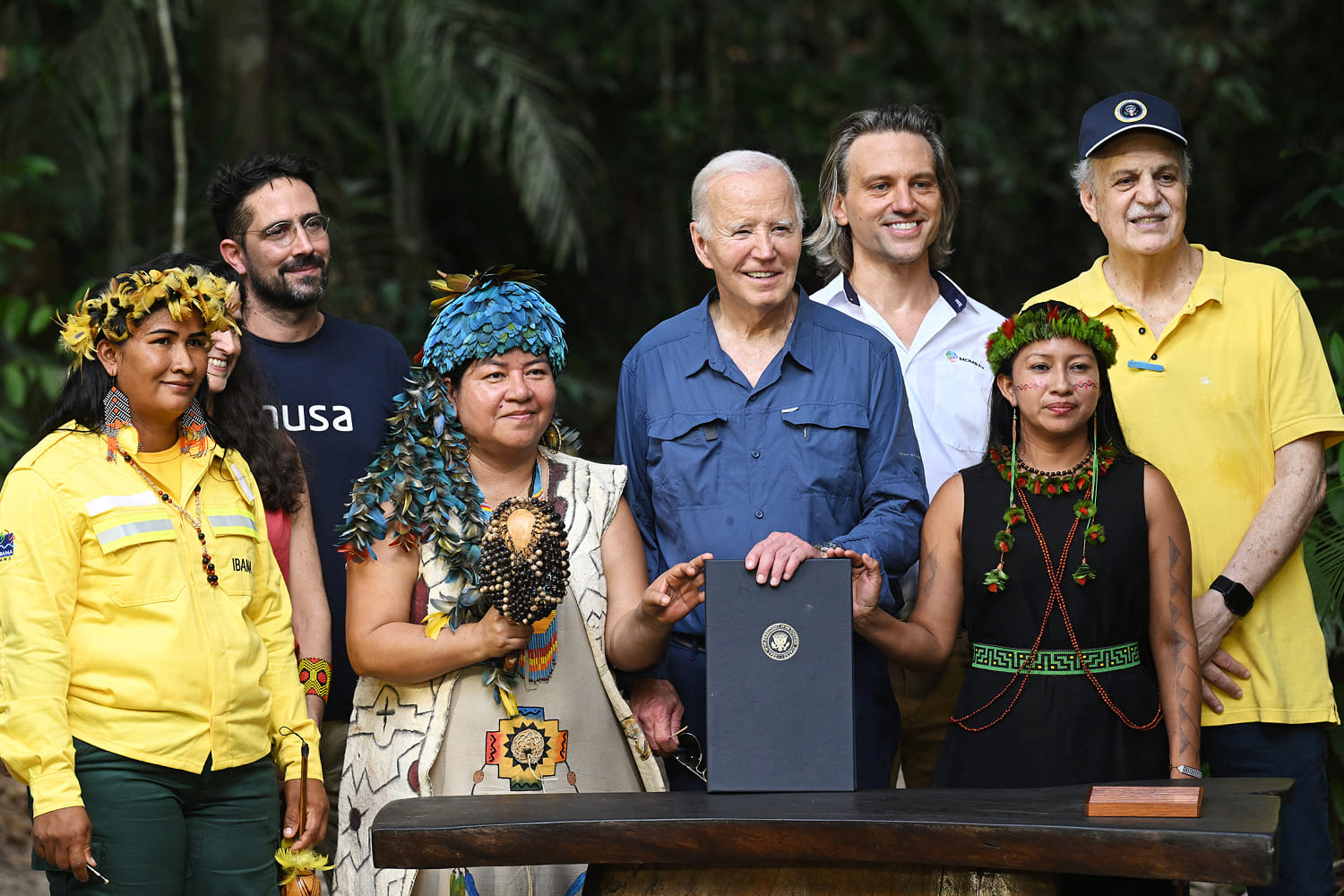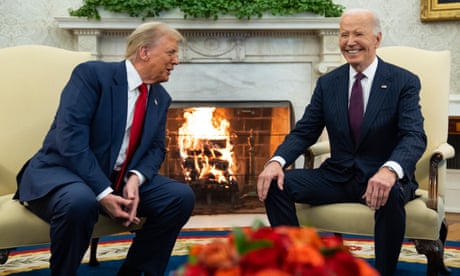How Biden can make pardons a stamp on his legacy

With the shocking presidential election results in the rearview mirror, President Biden must consider how best to cement his legacy during his remaining two months in office.
As a lame-duck president, he is unlikely to ease the two international crises that have hovered over his administration — the seemingly endless Russia-Ukraine War and the unceasing violence in the Middle East. Nor can he safeguard abortion rights for women, nor ensure equal voting rights.
But, there is one presidential authority he has left virtually untouched, through which the opportunity to make a profound difference still exists: the venerable pardon authority.
To be sure, Biden has pardoned thousands who had been convicted of simple marijuana possession on federal land or in D.C. Although few had served time, the pardon restored their civil rights. He also pardoned those who had been convicted long ago of violations of the Uniform Code of Military Justice for conduct that involved consensual, private acts with persons aged 18 or older.
Through almost four years of his presidency, he has only granted pardons in 25 other cases and commuted the sentences of 132 others.
In comparison, President Obama, over eight years, granted over 200 pardons (and another 1,300 other acts of clemency) to those who labored behind bars for relatively minor drug offenses, and President Trump over four years granted nearly 150 pardons to individuals who had been accused of a variety of offenses, including supporters such as Roger Stone, Paul Manafort, Michael Flynn and Charles Kushner.
The United States has placed more people behind bars than any other country in the world. The pardon authority vests in the president the august power to rectify past injustice. Obama focused principally on nonviolent drug offenders, an admirable step, but Biden can choose to deploy the pardon power more widely, whether to benefit those whose convictions were tainted by racism, non-violent offenders serving lengthy sentences, or those who committed crimes because of addiction.
This is Biden’s unparalleled opportunity to give lives back to many who, through desperation or illness, violated federal laws and are now suffering lengthy sentences. He cannot evaluate the specifics of the roughly 8,000 individuals whose petitions for pardons he has already received, let alone the more than 150,000 individuals currently serving time in federal prison, but he can prioritize whom to pardon and confer the priceless gift of a new life and, in so doing, add to his presidential legacy. The handful of pardons other than those of the marijuana offenders is not enough.
And, in exercising the pardon power, Biden faces two particularly ticklish political questions. First, should he pardon his son, Hunter Biden? He wouldn’t be the first president to pardon a close relative — President Bill Clinton pardoned his half-brother. One can imagine the swirl of emotions in making this decision.
Biden has said he wouldn’t offer his son a pardon, for he does not want to appear to favor family over country, but he hedged over whether he might commute his son’s sentence.
Second, Biden must decide whether to offer a preemptive pardon to colleagues in his administration whom Trump has threatened to prosecute. Indeed, leading Republicans have already accused his Department of Homeland Security Secretary Alejandro Mayorkas of high crimes and misdemeanors for failing to police our borders, and they in fact filed articles of impeachment against him, which were swiftly rejected by the Senate.
Moreover, Trump has intimated that Attorney General Merrick Garland (and perhaps others) have committed crimes in investigating and then prosecuting him for politically motivated reasons. Presidents have offered preemptive pardons in the past, most notably President Gerald Ford in pardoning then ex-President Richard Nixon for his conduct during the Watergate coverup.
A pardon would protect Mayorkas and Garland from the ravages of a public investigation and possible trial. And, as with Hunter Biden, a pardon would ensure that they do not serve time behind bars.
But given that Biden’s colleagues presumably are convinced that they have done nothing untoward, would a Biden offer of a pardon suggest guilt in the public eye? Biden is on the clock to resolve such tradeoffs.
The pardon power is uniquely his to deploy in these remaining months. Stay tuned.
Harold J. Krent is a professor of Law at Chicago-Kent College of Law and author of “Presidential Powers.” He has written extensively on the pardon power.
-

Ana Navarro says Biden should pardon his son
Politics - The Hill - November 11 -

How Harris’s Loss Could Haunt Biden’s Legacy
Top stories - The New York Times - November 6 -

Biden touts his climate legacy during landmark visit to Amazon rainforest
Top stories - NBC News - 3 days ago -
Biden still does not plan to pardon his son Hunter, White House says
Top stories - CBS News - November 7 -
How the birthplace of Grover Cleveland honors his unusual legacy
Top stories - CBS News - November 9 -

Biden welcomes Trump for fireside chat as he prepares to watch his legacy burn
World - The Guardian - November 13 -

No pardon planned for Hunter Biden, White House says
Politics - The Hill - November 7 -

GOP senator: Trump shouldn’t pardon Hunter Biden
Politics - The Hill - November 8 -
Is Biden’s legacy dependent on a Trump defeat?
World - Financial Times - November 1
More from The Hill
-

12:30 Report — Trump's embattled nominees
Politics - The Hill - 37 minutes ago -

Gaetz withdraws from attorney general consideration
Politics - The Hill - 42 minutes ago -

For Iran, disinformation comes just behind assassination
Politics - The Hill - 43 minutes ago -

Jussie Smollett conviction overturned by Illinois Supreme Court
Politics - The Hill - 52 minutes ago -

Trump Cabinet picks: Here’s who’s on the list to carry out his agenda
Politics - The Hill - 1 hour ago